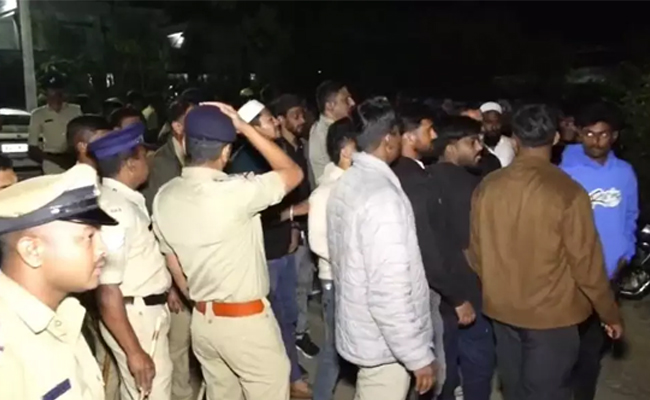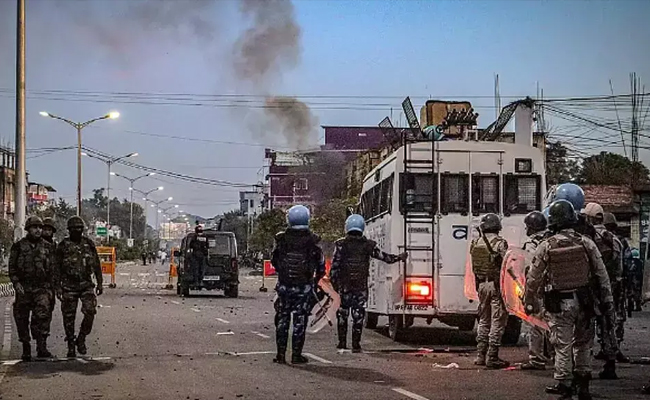Thiruvananthapuram: A 23-year-old engineering student, here, was arrested on Thursday by the police for the murder of his 51-year-old mother.
The state police arrested Akshay Ashok, after keeping him in custody for two days, following his confession of the brutal act.
His mother, Deepa's charred body was found from the waste yard of their house on Tuesday morning.
Ashok himself had alerted the police on Tuesday stating that a charred body was found in their backyard. He also said that his mother was missing since Monday evening.
The police took him into custody after they found him changing his statements.
During the interrogation, Ashok confessed that he and his mother were not on talking terms and on Monday afternoon, he had pushed her down. He then using a bed sheet strangulated her to death, he told the police.
According to the police, after he ensured that his mother was dead, he burned her in the place where they normally burn the waste, using petrol.
Ashok has completed his engineering course earlier in 2017, and was waiting to clear a few of the remaining papers. His father was employed in Muscat, while his sister was married and in UAE.
Both of them have arrived here, after the murder.
The police were awaiting the DNA results of the dead body, as that would confirm Deepa's death.
The body was yet to be handed over to the family. The police was also probing Ashok for drug-use.
Let the Truth be known. If you read VB and like VB, please be a VB Supporter and Help us deliver the Truth to one and all.
Chikkamagaluru (Karnataka) (PTI): Tension gripped the Vijayapura area of Chikkamagaluru late Monday night following allegations of stone-pelting, triggering protests by members of two communities and heavy police deployment.
Allegations surfaced that some youths from a community had pelted stones at houses over the past week and harassed girls for the last three days, leading to outrage among local residents, police said.
According to police sources, two youths who were found moving in a suspicious manner were caught by activists of an organisation, beaten up and later handed over to the police. Soon after, hundreds of youths from both communities gathered in front of the Basavanahalli Police Station and the government hospital, creating a tense atmosphere.
While one group claimed they were not involved in stone-pelting, another group demanded strict action against those responsible for the attacks on houses and alleged harassment.
Police, who were alerted in advance, rushed to the spot and dispersed the crowd.
Authorities said they struggled for some time before bringing the situation under control. Tight security was in place across the city.
Meanwhile, the two injured youths are undergoing treatment at the government hospital.





